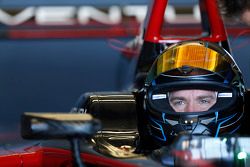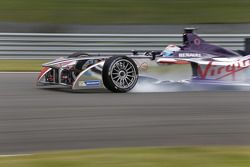We've reached a breaking point in the history of motorsport. From a constructor's point of view, Formula 1 is no longer about building the fastest racing car possible. Engines hit their peak in the V10 era, producing close to 1,000 hp. These bestial units, coupled with increasingly intricate aerodynamic solutions, reached their optimal on-track performance in 2005, when Juan Pablo Montoya reached a whopping 372.6 km/h (231.5 mph) at the Italian GP.
Speed doesn't matter anymore
This record stands until this very day as the fastest speed ever achieved by an F1 car in a race and it will probably remain like that for good. The following season saw the introduction of V8 engines and the start of a regulatory trend: slowing down the cars. Track records became meaningless and the focus of development shifted towards resource efficiency. This is roughly how we ended up with the current V6 engine formula.
This change of direction of course has its pros (driver safety) and cons (that annoying whirring sound that has replaced the roar of a proper F1 engine). It is undeniable, however, that this has removed F1 from its traditional position as the testing ground for pushing limits in car building. This is where Formula E comes in.
Give it time
It'll be years until Formula E can get in the ballpark of F1 in terms of horsepower and speed, but the waiting period will be a very interesting one. While the trend in the "pinnacle of motorsport" is to slow the cars down artificially through complicated regulations, the fully electic-powered championship will see a progressive increase in power with every season.
The same innovation and desire to win that led racing car constructors to create better, more sophisticated solutions like the rear-view mirror in the early days or 4-wheel-drive later on will now be applied to one of the most important challenges of modern engineering: producing an electric engine that can match their fossil fuel counterparts, both in terms of power output and autonomy.
Not only will we see the likes of Audi battling Renault and other industry giants for the privilege of having the best electrical engine in the world. Other companies, such as Qualcomm, will have a truly elite testing field for the peripheral technology that must also evolve to make electric cars accessible and mainstream, like faster chargers.
In the first year, we will see spec cars running the same chassis and engine, which will deliver a performance slightly above F3 but not above Formula Renault 3.5. They will also go into the pits to change cars because battery life is not equal to the full GP distance. And of course there's the lack of engine noise. This doesn't sound very appealing to the more purist crowd. But what about next year? What about 5 years form now?
What the future holds
What happens when they get the performance to GP2 levels or even better? What happens when they develop a battery that lasts full GP distance? What happens when they develop the technology to make the car charge in just a matter of seconds just from parking it over a designated area?
I'll tell you what happens that day: the electric car will be a reality and not just a conceptual exercise or a privilege for people who live in certain areas of the world. If Formula E can sustain itself in its role of "complementary to F1" for the coming years, it could change the motor industry forever. Heck, one day it'll simply become F1 itself if the trend to make it more relevant for road car development continues.
Don't get me wrong, I still enjoy the mighty sound and the feeling of power that only a combustion engine can produce. And we will enjoy it for many years still. But the fact of the matter is that eventually (sooner or later depending on the willingness of auto makers to pursue electric engine development and if oil companies succeed less and less in their efforts to boycott said development), electric engines will be the industry standard, motorsport included.
This is the rebirth of race car engineering as a whole. I don't know about you, but that's a very exciting prospect and we get to witness it live.






























Top Comments